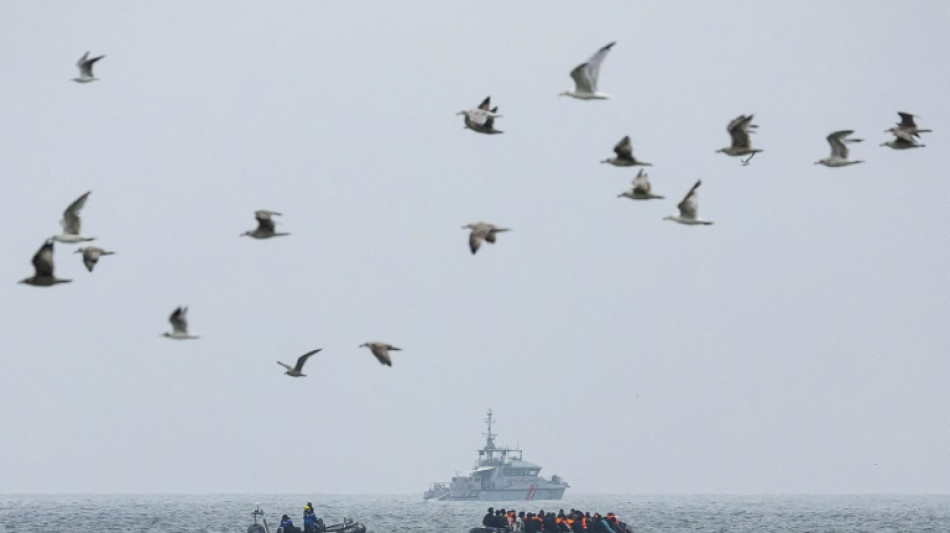
-
 Scandic Trust Group strengthens sales network with First Idea Consultant
Scandic Trust Group strengthens sales network with First Idea Consultant
-
Green shines as Suns thump Clippers 115-102

-
 Japan to screen #MeToo film months after Oscar nomination
Japan to screen #MeToo film months after Oscar nomination
-
Erasmus relishing 'brutal' France re-match on Paris return

-
 Rejuvenated Vlahovic taking the reins for Juve ahead of Turin derby
Rejuvenated Vlahovic taking the reins for Juve ahead of Turin derby
-
'Well-oiled' Leipzig humming along in Bayern's slipstream

-
 Bangladesh cricket probes sexual harassment claims
Bangladesh cricket probes sexual harassment claims
-
NFL-best Broncos edge Raiders to win seventh in a row

-
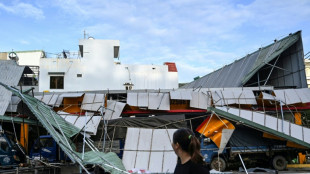 Deadly Typhoon Kalmaegi ravages Vietnam, Philippines
Deadly Typhoon Kalmaegi ravages Vietnam, Philippines
-
Three killed in new US strike on alleged drug boat, toll at 70

-
 Chinese microdrama creators turn to AI despite job loss concerns
Chinese microdrama creators turn to AI despite job loss concerns
-
Trump hails Central Asia's 'unbelievable potential' at summit
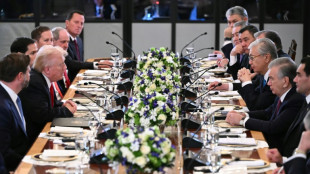
-
 Kolya, the Ukrainian teen preparing for frontline battle
Kolya, the Ukrainian teen preparing for frontline battle
-
Big leap in quest to get to bottom of climate ice mystery

-
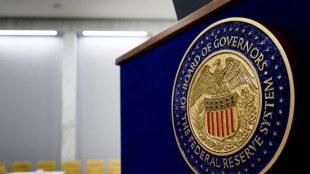 Markets drop as valuations and US jobs, rates spook investors
Markets drop as valuations and US jobs, rates spook investors
-
'Soap opera on cocaine': how vertical dramas flipped Hollywood

-
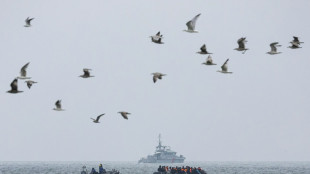 Under pressure? EU states on edge over migrant burden-sharing
Under pressure? EU states on edge over migrant burden-sharing
-
US influencers falsely associate Mamdani with extremist group

-
 Hungary's Orban to meet Trump in face of Russia oil sanctions
Hungary's Orban to meet Trump in face of Russia oil sanctions
-
US facing travel chaos as flights cut due to govt shutdown
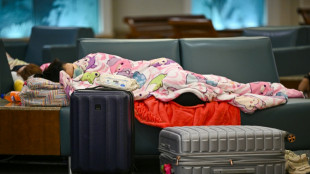
-
 Liverpool and Man City renew rivalry as they try to narrow Arsenal gap
Liverpool and Man City renew rivalry as they try to narrow Arsenal gap
-
UK's Andrew asked to testify over Epstein as he formally loses titles
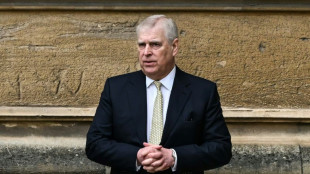
-
 Local hero: 'DC sandwich guy' found not guilty of assaulting officer with sub
Local hero: 'DC sandwich guy' found not guilty of assaulting officer with sub
-
Dead famous: Paris puts heritage graves up for grabs

-
 UK grandmother on Indonesia death row flies home
UK grandmother on Indonesia death row flies home
-
Former NFL star Brown extradited from Dubai to face trial in shooting - police
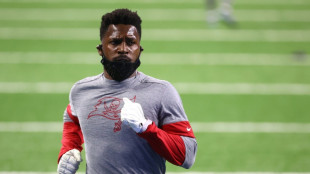
-
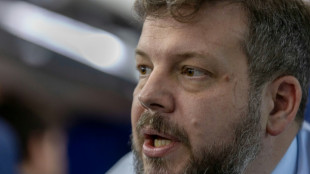 Chile presidential hopeful vows to expel 'criminal' migrants to El Salvador
Chile presidential hopeful vows to expel 'criminal' migrants to El Salvador
-
Trump event paused in Oval Office when guest faints

-
 NFL Colts add Sauce to recipe while Patriots confront Baker
NFL Colts add Sauce to recipe while Patriots confront Baker
-
Home owned by Miami Heat coach Spoelstra damaged by fire
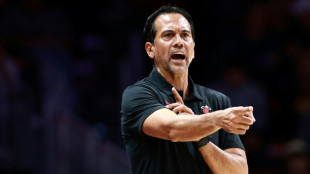
-
 Tesla shareholders approve Musk's $1 trillion pay package
Tesla shareholders approve Musk's $1 trillion pay package
-
World leaders launch fund to save forests, get first $5 bn

-
 Villa edge Maccabi Tel Aviv in fraught Europa League match
Villa edge Maccabi Tel Aviv in fraught Europa League match
-
Protests as Villa beat Maccabi Tel Aviv under tight security

-
 US Supreme Court backs Trump admin's passport gender policy
US Supreme Court backs Trump admin's passport gender policy
-
Japan boss Jones backs Farrell to revive Ireland's fortunes

-
 MLB Padres name former reliever Stammen new manager
MLB Padres name former reliever Stammen new manager
-
'Grand Theft Auto VI' video game delayed again until Nov. 2026

-
 Martino returns as head coach of MLS Atlanta United
Martino returns as head coach of MLS Atlanta United
-
Hamilton dismisses Ferrari exit claims

-
 Musetti keeps ATP Finals hopes alive, joins Djokovic in Athens semis
Musetti keeps ATP Finals hopes alive, joins Djokovic in Athens semis
-
England boss Borthwick wants 'brilliant' Marcus Smith to shine against Fiji

-
 Piastri says he is confident he can recover and win drivers' title
Piastri says he is confident he can recover and win drivers' title
-
Verstappen admits he may need a bit of 'luck' to haul in rivals in title race

-
 Kazakhstan to join Abraham Accords as Trump pushes Mideast peace
Kazakhstan to join Abraham Accords as Trump pushes Mideast peace
-
'Moral failure': Leaders seek to rally world at Amazon climate talks
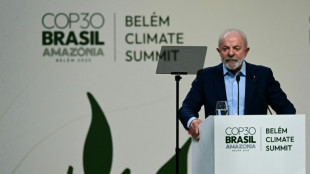
-
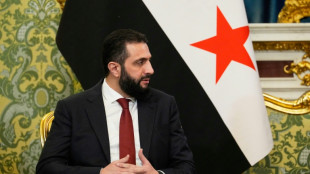 UN Security Council votes to lift sanctions on Syrian president
UN Security Council votes to lift sanctions on Syrian president
-
Democratic giant, trailblazer and Trump foe Nancy Pelosi to retire

-
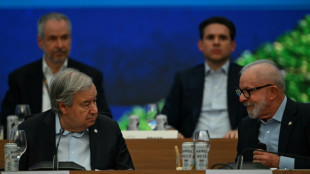 World leaders ditch ties at sweaty climate summit
World leaders ditch ties at sweaty climate summit
-
Dallas Cowboys' Marshawn Kneeland dies at 24


Under pressure? EU states on edge over migrant burden-sharing
Which EU countries face the most pressure from migration? The question is proving deeply divisive as capitals scramble to agree by year-end how to redistribute at least 30,000 asylum seekers across the bloc.
The 27-nation European Union adopted a sweeping overhaul of its migration policies in 2024, soon to come into force.
A key element is a new "solidarity" system for managing asylum seekers, aimed at easing the burden on frontline countries such as Spain, Greece and Italy.
The idea is broadly speaking to sort member states into different categories:
-- Those deemed by Brussels to be under "migratory pressure", based on criteria such as the number of irregular arrivals and sea rescue operations.
-- Other countries, which will be required to either take in a share of asylum seekers from countries under pressure, or provide them with financial support amounting to 20,000 euros ($23,000) per person.
- Feeling the pressure -
There the trouble begins: how to decide who qualifies as "under pressure".
"You can see in the political rhetoric that everyone feels that they are under migratory pressure," said a source within the European Commission, which is tasked with sorting countries into categories.
Member states are lobbying hard to influence the methodology used.
In recent days, for instance, Sweden has pointed to the 300,000 asylum applications it received over the past decade as a high figure for a "medium-size country".
Belgium highlights that its migrant "reception centres are full", while Germany has stressed it has taken in more than a million Ukrainian refugees since Russia's invasion in 2022.
France, meanwhile, has underscored its maritime rescue operations for migrants attempting to cross the Channel to Britain.
The commission is expected to unveil its proposal next week, following nearly a month of delays.
That will form the basis for negotiations among member states on how many additional asylum seekers each is willing to accept -- or how much financial support they are ready to offer.
At least 30,000 migrants will need relocating each year under the new system, with a decision on who goes where required by the end of December.
- 'Tricky balance' -
But with governments across the bloc under pressure to tighten immigration policies, putting a hand up to take in extra asylum seekers is fraught with political risk.
"It's an extremely tricky balance to strike," said Camille Le Coz, head of the Migration Policy Institute Europe think tank.
All the more so because "countries don't trust each other on this question," she told AFP.
Several states -- including Germany, Belgium and The Netherlands -- accuse frontline countries of allowing migrants to move on into the bloc, rather than processing their asylum claims as required under EU law.
Frontline countries tend to reject the charge.
"The Germans are on edge -- there are tensions with the Italians and the Greeks over this file," said an EU diplomat, granted anonymity to discuss the sensitive matter.
"It's not easy, because everyone is watching one another and wondering: 'Will the other member state end up with a better deal?'" he said.
W.AbuLaban--SF-PST
